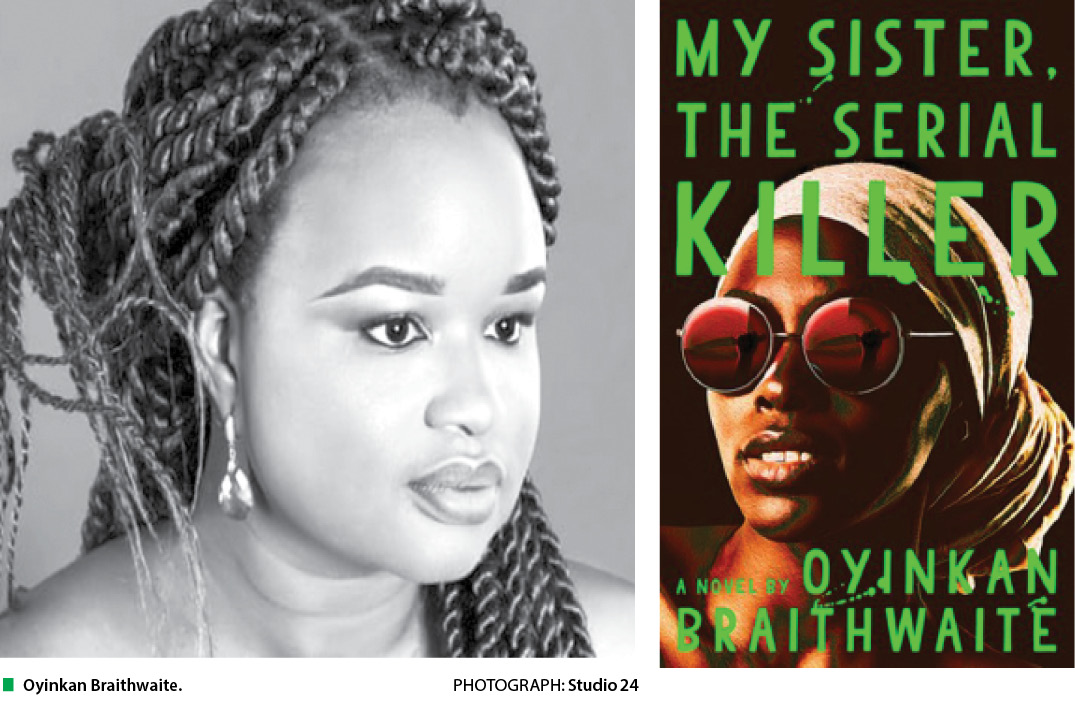My Sister, the Serial Killer, by Oyinkan Braithwaite – A morbidly funny slashfest
Sibling loyalty comes under pressure in a Lagos-set debut that mixes crime, love story and family saga With a title like that, you expect a belter of an opening, and Oyinkan Braithwaite’s debut novel doesn’t disappoint. It kicks off with Korede, sponge in hand, reflecting that the hardest place to scrub clean of blood […]

My Sister, the Serial Killer, by Oyinkan Braithwaite – A morbidly funny slashfest
Sibling loyalty comes under pressure in a Lagos-set debut that mixes crime, love story and family saga
With a title like that, you expect a belter of an opening, and Oyinkan Braithwaite’s debut novel doesn’t disappoint. It kicks off with Korede, sponge in hand, reflecting that the hardest place to scrub clean of blood is the join between the shower and the caulking. She should know; this is the third boyfriend her sister Ayoola has dispatched in “self-defence”.
This is no crime thriller, however. Braithwaite is most interested in the relationship between the sisters, who are close despite their opposing natures (Ayoola is gorgeous and slapdash, Korede angular and efficient). She puts their bond under increasing strain to find the breaking point. Korede feels obliged to help cover up for her sister’s misdeeds, but how will she react when Ayoola makes a play for the cute doctor she has long adored from afar?
It’s a classic love triangle, with the added twist of the knife Ayoola takes with her on dates. Initially, though, Braithwaite pulls her punches on the serial-killer storyline: Korede spends more time being scared that Ayoola will steal her crush than that she’ll stab him. Once the tears start to flow, it all gets a bit schmaltzy. “Seeing them together turns me inside out,” Korede laments. In a different sense, it may well turn the doctor inside out, too.
Braithwaite lives in Lagos, and she makes full use of the city’s character – the traffic jams, the cops, the rain that breaks umbrellas – to give the story a remarkably strong sense of place. Nigerian culture is alluded to subtly, as with the sister father’s wooden cane: its intricate carvings capture the past, but its legacy of violence stretches out into the future.
By the final chapters, the book has so much going on that it becomes difficult to tell how the various storylines are intertwining. It all adds up to a distinctive but uneasy mix of morbid humour, love story, slashfest, family saga and grave meditation on how abusive behaviour is passed down through the generations. The real joy lies in the characters: Ayoola is a delight, waltzing through Lagos with supreme self-confidence: “Only the guilty go to jail,” she reassures herself, confident that she doesn’t fall into that category. Korede, too, is complex and intriguing. The pair of them outshine their story, which ultimately tries to do too much and so never quite delivers on the promise of its audacious conceit.
Source: The Guardian UK
